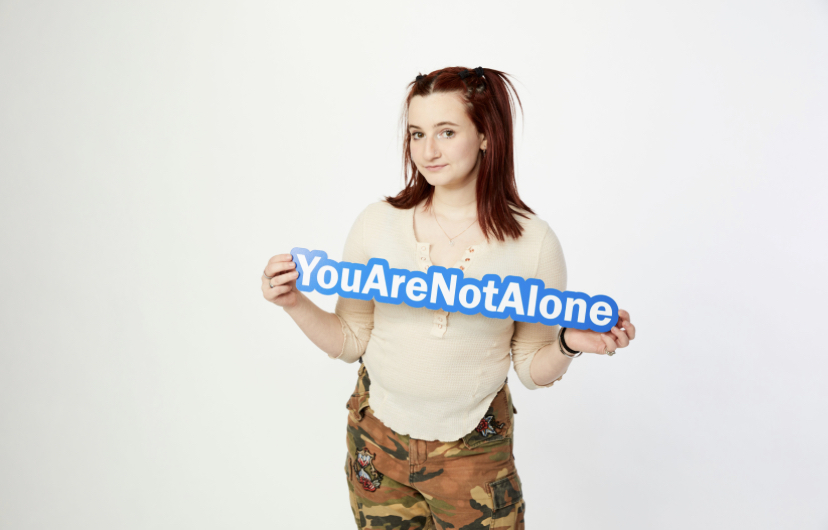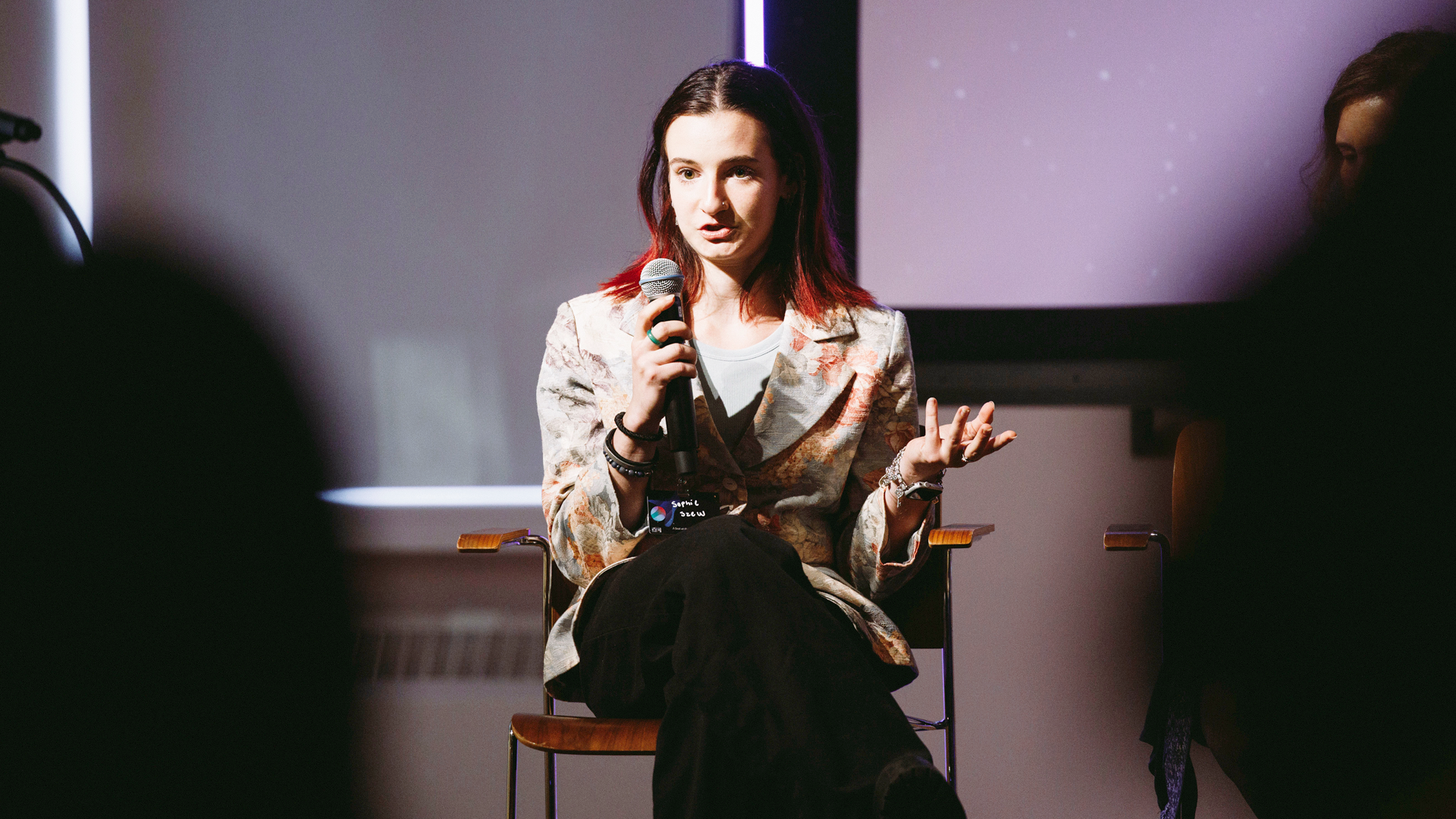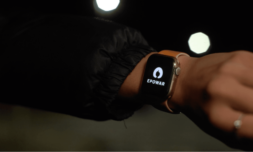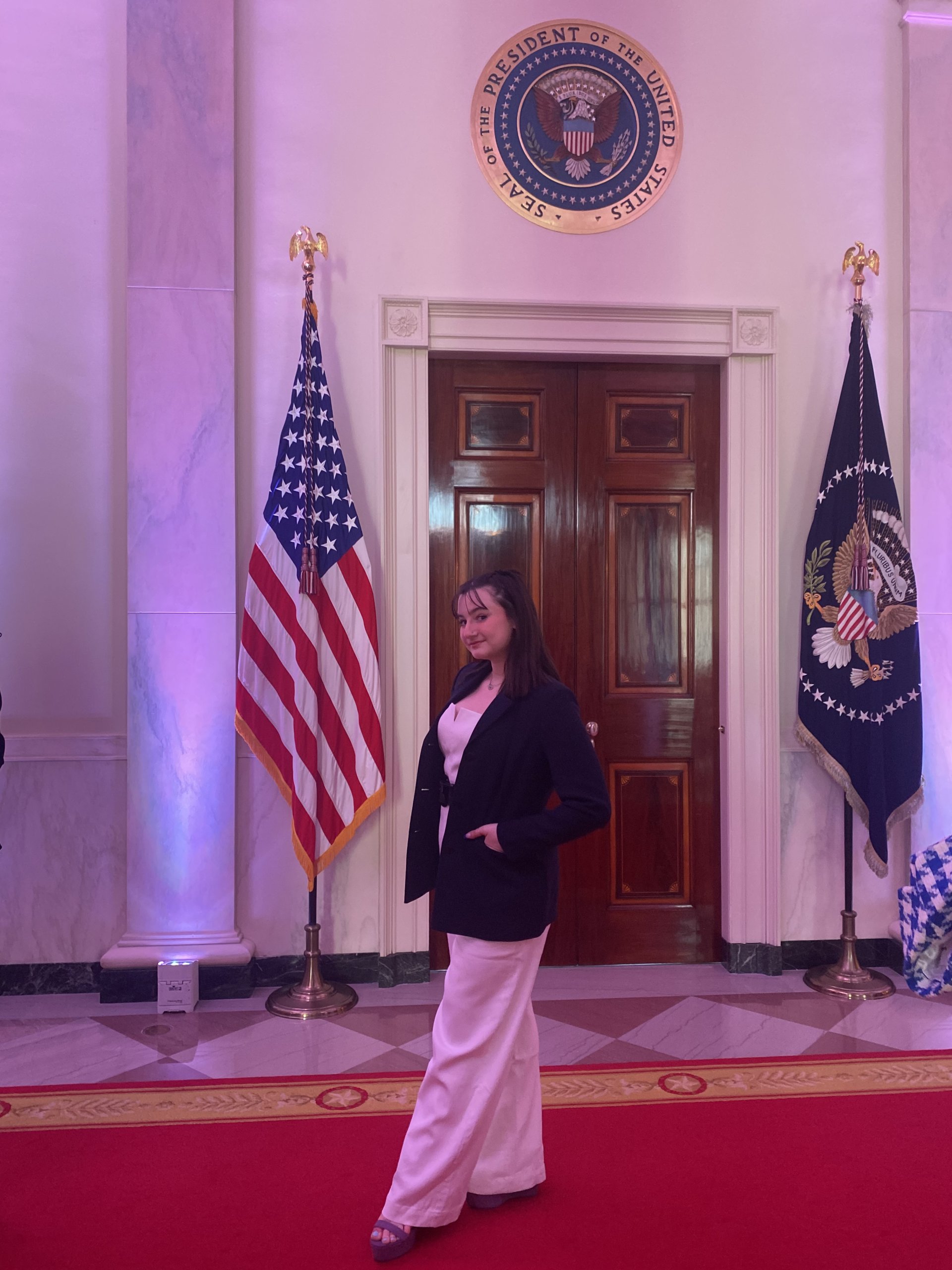We spoke to activist, writer, and public speaker Sophie Szew about her community-focused approach to healing and how she is using that vision to influence the future of government mental health policies.
‘My personal experiences shape my advocacy in that my personal experiences were my path to advocacy,’ says Sophie Szew, an award-winning poet, youth mental health activist, and advocate for policy reform within the U.S. federal government.
Sophie’s response to my first question is a taste of the honest, no-nonsense energy I’ll become privy to throughout our call. She’s everything you’d expect from a Gen Zer working with government leaders to improve their mental health policies – sharp-witted and driven by challenging the status quo. I like her already.
Her impressive accolades – winning the Woorilla Poetry Prize, giving testimony in front of the California State Senate Judiciary, and meeting with former US President Joe Biden – are the result of being impacted by the systemic issues she is now dedicating herself to resolving.
‘I really care about finding and helping others find words to describe their experiences in order to connect us to each other. I think that’s the foundation for building the power and solidarity required to enact the change we need to see,’ says Sophie.
Her journey began unwittingly, as a 10-year-old discovering the boundless possibilities of Instagram’s explore page. Picking up on her interest in DIY videos and healthy recipes, the algorithm quickly spun Sophie’s recommended content into strict diet and exercise regimes. After implementing this advice into her everyday life, the algorithm rewarded her with more of it.
It wasn’t long before her social media homepage was dominated by pro-eating disorder content.
View this post on Instagram
Over the next few years, Sophie would be in and out of hospital, receiving treatment for an illness she believes may have never developed if proper online safeguards had been in place. And like many reliant on the healthcare system, Sophie felt the full scope of her experience had failed to be acknowledged. While visible progress towards healing was taking place, invisible wounds went unaddressed.
‘There was a lot of shame about what I was going through,’ Sophie tells me. ‘I felt very isolated, and you can’t really talk about a problem until you realize that there are words to describe it, and until you realize you are not the only one going through it.’
During one hospital stay, Sophie reached out to her English teacher who was receiving cancer treatment. They discussed mental health, grief, and their non-linear paths to healing. These conversations exposed the healthcare system’s shortcomings, many of which Sophie would process and shed light on through her poetry.
‘The ability to put language to the experiences I went through when I was institutionalized for an eating disorder and other mental health conditions was really what empowered me to share my story. Those words came poetically for me, at least at first.’
Winning the Woorilla Poetry Prize for these works in 2021, Sophie ramped up her mental health advocacy, exploring how government strategies aimed at addressing individual struggles could be improved by adopting a more community-focused approach.
‘Growing up Jewish, I’ve always had a strong connection to my spirituality and community,’ Sophie tells me. ‘The United States and most other countries treat mental health in a way that is siloed from communal health, from physical health, from spiritual health. Treating health as an individual issue rather than a communal one is something that, from the get-go, created a lot of dissonance for me.’
For Sophie, the journey to healing would come most effectively when connecting with others and when framed as not just benefitting herself, but her entire community.
‘We talk a lot about self-care in the mental health advocacy space, but it’s often co-opted from its original intent which was for Black feminists to be able to meet their basic needs in a very radical way,’ Sophie points out.
‘The idea that we should work towards healing ourselves, one another, and our society in order to heal our systems isn’t something that is supported by mainstream society,’ she continued.
Sophie is referring to the Black Panther movement, when women in the party practiced feminist self-care as a political and radical act of self-love and self-preservation.
In this context, self-care was as an act of appreciation and acceptance for one’s mind and body as it was and is, a way to build up energy to resist oppression and discrimination, and to live a full life in an unequal world.
‘Once I understood that I needed to meet my own needs in order to contribute to uplifting and healing my community, that’s when the concept of self-care really began to resonate,’ she explains.

Sophie’s community-centric approach to wellbeing is a far cry from the highly individualistic self-care advice we’re sold by major corporations. She points out that this is not unintentional, that current systems of power thrive on offering, ‘individual, short-term distractions and cures that keep us rooted in the day to day.’
While Sophie admits that a bubble bath and a face mask certainly isn’t hurting anyone, she recommends placing more focus on how each of our actions and interactions – no matter how small – could contribute to a larger framework of healing. Luckily, for the youth of today, this isn’t a hard concept to grasp.
‘Gen Z has done a really good job realizing that we’re being sold individual band-aids for systemic bullet holes,’ Sophie says. ‘Healing those systemic wounds takes communal power. It takes us working together and it takes us working intergenerationally to heal them.’
Intergenerational communication is especially vital to making progress, Sophie says, and it’s why she serves on the National Advisory Council for the Substance Abuse and Mental Health Services Administration (SAMHSA).
While striving to influence policy by meeting with those in positions of power, Sophie has noticed a pattern of disillusionment about the issues they believe young people face.












 Last year, Sophie had an opportunity to bridge this gap when she took part in the
Last year, Sophie had an opportunity to bridge this gap when she took part in the 








